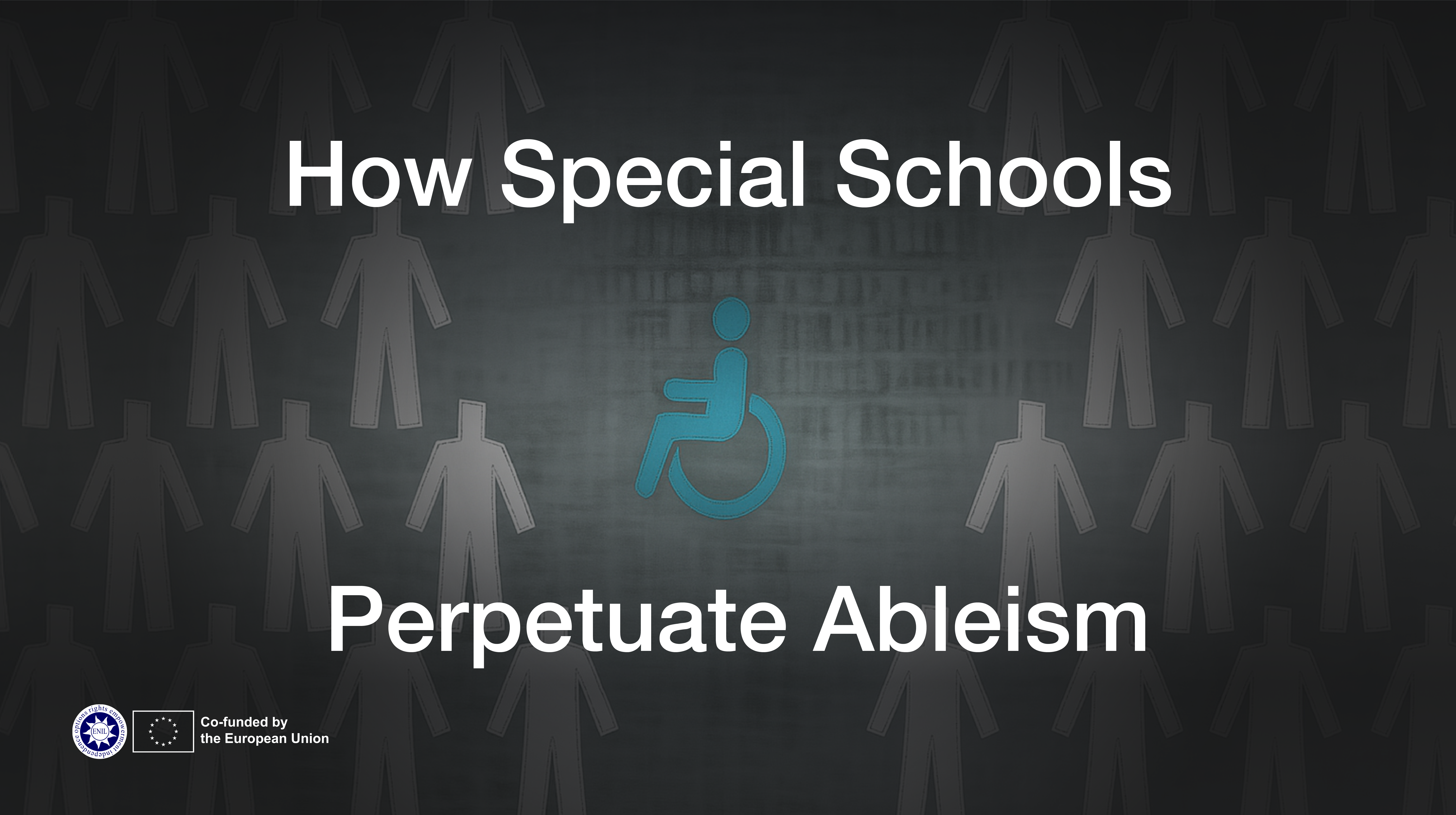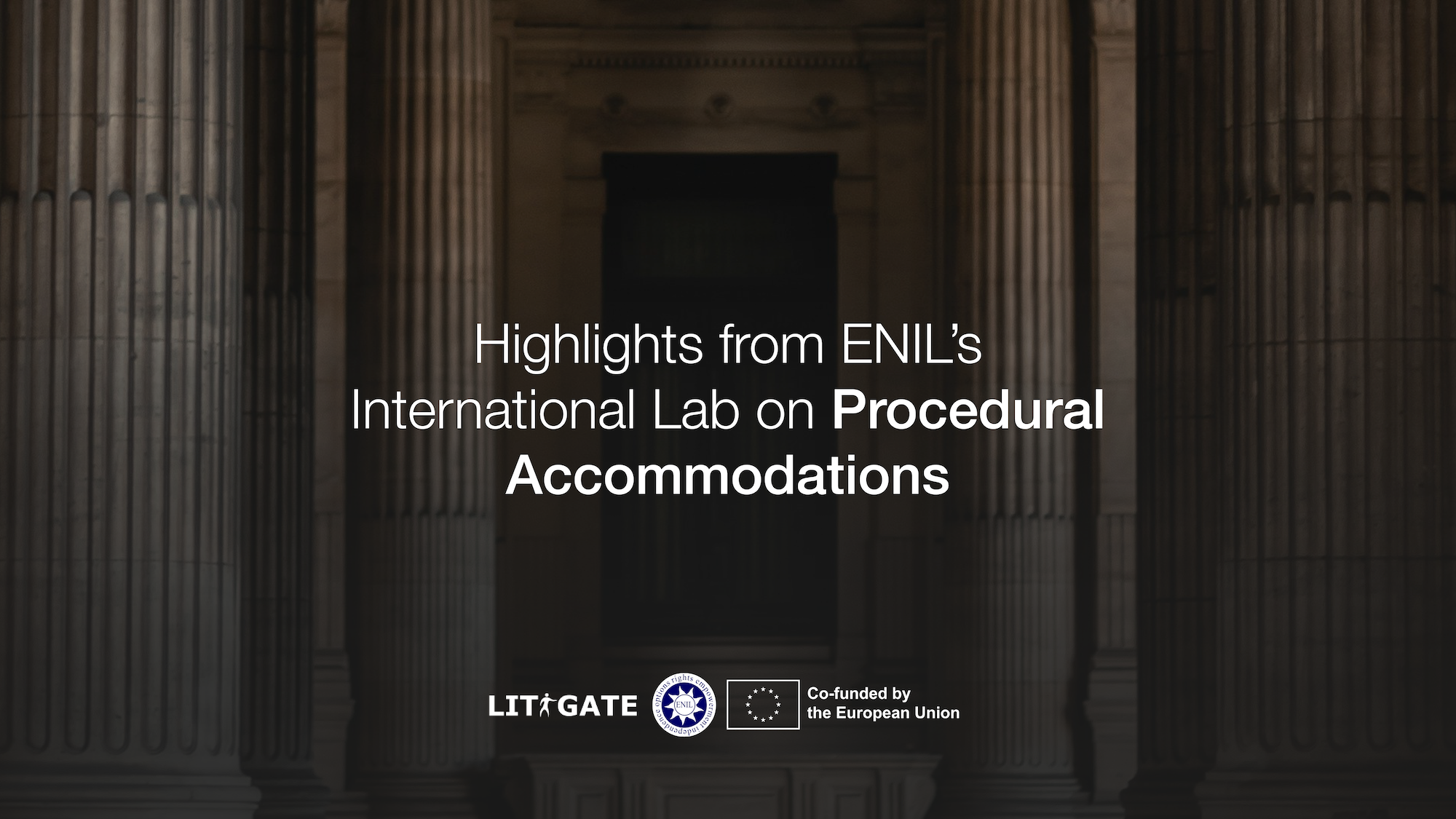On 16th January, the European Expert Group on the Transition from Institutional to Community-based Care (EEG) marked 10 years of its work by organising a conference on deinstitutionalisation, supported by the European Commission. ENIL (with the European Coalition for Community Living) has been a member of the EEG since the very beginning, when it was called the Ad Hoc Expert Group, and the so-called “Špidla report” was published. We therefore took part in the conference, together with our members from Spain, Austria, Hungary, Bulgaria and Sweden, among other.
The aim of the conference was to take stock of the past 10 years and to suggest ways forward. A draft report was also presented, with data on how far the EU Member States have come in making sure children, disabled adults and children, but also older people, the homeless and migrants have come in having access to the community-based support they need to be included. Though we cannot share the report, one of the main messages was the continued lack of clarity about how many people continue to live in institutions in the 27 EU countries.
While many reflected on EEG’s beginnings and work until now, there was little offered by the speakers when it comes to a vision on how to address the many challenges that remain. We heard from a survivor of institutional care, Elisabeta Moldovan, from Romania, who spoke eloquently about the harm of institutionalisation and demanded that everyone be given an opportunity to live in the community. We also heard from Government representatives, service providers and NGOs from Romania, Finland, Spain and Greece about some of the work that is going on to move away from institutional care.
Several Commission officials also spoke during the conference. Notably, the new Commissioner for Equality Helena Dalli gave a speech on the importance of independent living for the EU and announced the new Disability Equality Strategy for 2021. Moreover, she stated that “every intendent cent” of EU Funds will, in the future, be spent on independent living. Despite these strong words – which we welcome – other Commission officials who spoke at the conference left us confused as to how this will be achieved.
Bulgaria was highlighted by two Commission officials as an example of progress made towards deinstitutionalisation since EEG’s inception. When reminded about the evidence of human rights violations in EU funded “family-type centres” by one of the participants, the response was that these were “isolated incidents”. At the same time, much was made of EU’s obligations under the UN Convention on the Rights of Persons with Disabilities and the recommendations of the Committee on the Rights of Persons with Disabilities. How these two approaches – that of blatantly ignoring and denying human rights violations, and at the same time claiming compliance with the CRPD – can ever be reconciled, is a mystery.
Putting the evidence of human rights violations aside, even the fact that the Commission officials continue to refer to family-type centres and group homes as deinstitutionalisation, shows that they are ignoring both the Convention requirements and the Committee’s recommendations. A number of EU countries have so far been cautioned by the Committee for moving people from larger into smaller institutions under the guise of community living, and General Comment 5 on Article 19 CRPD is clear on this issue.
Ten years is long enough for EU’s “learning period” to end. What ENIL would like to see now is for both the European Commission and Member States to start being accountable to EU citizens, with regard to how our funding is used. That means taking any evidence of funds misuse seriously and, rather than simply referring to the CRPD, taking concrete steps to implement it. There is clearly a need for a new vision at the EU level that will see children, disabled people and other groups genuinely included in society, rather than put into golden cages.
For more information about the conference, click here.


